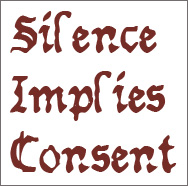When I divorced my first husband in 2004, I thought that was the end of this fucked up relationship. However, despite working with some great counselors over the ensuing years, it took me years to figure out how I had developed the low self esteem that drew me to a bully. My parents had loved me so how did my self esteem go so off track such that I ended up with that guy?
My siblings had complained for decades that I was “so spoiled,” but how would a pampered child grow up to have low self esteem? The childhood recipe for compromised self esteem does not consist of one part supportive parents and one part financial stability, which is what I experienced. Wouldn’t the fortunate child be more likely to have a sense of high self esteem?
Have You Read Nonviolent Communication by Marshall Rosenberg?
I believe that identifying the source of my low self esteem would finally conclude that unhappy period of my life and would protect me from revisiting dysfunction in relationships. Let’s ask one of my sisters where I might have developed my low self esteem. With an anxious look, she says, “I think you should just move on.” Sorry “sister,” no can do. Don’t you want to talk about the passive-aggressive “jokes” designed to reject, exclude, and uglify? Ask yourself, would you ever let anyone else treat your daughter the way you treated your youngest sibling? I didn’t think so.
Plenty of older siblings are terrible to youngest siblings. With their larger size and more developed brains, older children can easily push around the youngest child, especially if the parents aren’t paying close attention to inter-familial dysfunction. The playing field gets more level once we enter adulthood and often less savory memories get swept under the rug. Once into adulthood, these older siblings may acknowledge their aggressive and controlling behavior, apologize, and everyone moves on. Unless they try to cover their tracks and pretend they didn’t do what they did. I encourage all my siblings to read Nonviolent Communication by Marshall Rosenberg to more effectively deal with their anger at our parents that they take out on me.
Rhymes with Cramps
How did loving parents allow persistent bullying to take place among their children? It’s all in the family. While my Dad’s father “Gramps” earned accolades and respect from his satisfied clients, back at home he bullied his children and his wife. Gramps died when I was 2 so I’ve only heard stories but I don’t like what I’ve heard.
Remember that story about how he dropped off his wife at the grocery store and told her he was going around the block twice and she better be ready to get picked up? Hilarious! Or what about that time at the dinner table when he lionized his namesake son as the Golden Boy and shamed his younger son as the idiot? Great parenting Gramps! In that case, he made everyone in his family an accomplice to his violent communication. I learned that years later, my uncle’s sisters shared with him that this treatment by their father was wrong. He had blocked out most of the dysfunction. I’m sorry for my uncle, my Dad, and their whole family that Gramps treated them this way. Bullying blows.
Disembarking from the Alcoholic Family Train
But wait, it gets better. Not only was Gramps a bully to his own family—this Kennedy patriarch wannabe even compelled his adult children to vote as he wanted them to in the 1960 election, the only time my Dad ever voted for a Democrat—but he also scattered his alcoholic genes deep into my family. Two of the first things I learned in my family were “Everyone’s perfect” and “We don’t talk about it.” Alcoholic families learn these rules pretty early on. Perhaps the “don’t talk about it” message we collectively internalized empowered my more aggressive siblings while silencing me. Until now.
One of the best things about growing up in a (dry) alcoholic family is that after all those years of “we don’t talk about it,” suddenly you find that you have tons of rich material to mine. Remember that story about how he fell asleep in his chair after a few scotches while smoking a cigarette? He set his chair on fire with the cigarette and then calmly (“We don’t talk about it!”) went back and forth a few times to the kitchen to fill a glass of water to douse the flames. Impressive Gramps! Ugh.
I’m not afraid of this apparently intimidating character: I’m furious with him for his choices and parenting that touched my family negatively. And the way some try to ignore the alcoholism: it sucks. Is it embarrassing to have a “patriarch” who is an alcoholic? Only if you don’t look at it in the clear light of day and call out the dysfunction. Alcoholism thrives in silence and prefers if we could just focus on how “Everyone’s perfect,” amirite?
We have drinkers on both sides of my family, for sure, but the alcoholic fairy dust is sprinkled more liberally through Gramps-ville. I’m not tight with everyone in my extended family so I could have missed a few but, by my count, I recognize 8 people in Gramps-ville who have either married a substance abuser or who have abused substances themselves. Thanks Gramps!
I think this is my stop: it’s time to get off our alcoholic family train that breeds dysfunction through aggression, silence, and shame. I can’t fire my grandfather but I can divorce myself from those who channel his anger bear rageball behavior. Bye bye!



